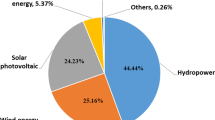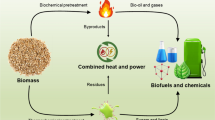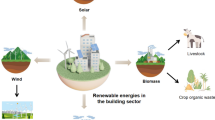Abstract
In sub-Saharan Africa, biomass fuels account for approximately 90% of household energy consumption. Limited evidence exists on the association between different biomass fuels and health outcomes. We report results from a cross-sectional sample of 655 households in Malawi. We calculated odds ratios between hypothesized determinants of household air pollution (HAP) exposure (fuel, stove type, and cooking location) and five categories of health outcomes (cardiopulmonary, respiratory, neurologic, eye health, and burns). Reliance on high- or low-quality firewood or crop residue (vs. charcoal) was associated with significantly higher odds of shortness of breath, difficulty breathing, chest pains, night phlegm, forgetfulness, dizziness, and dry irritated eyes. Use of high-quality firewood was associated with significantly lower odds of persistent phlegm. Cooks in rural areas (vs. urban areas) had significantly higher odds of experiencing shortness of breath, persistent cough, and phlegm, but significantly lower odds of phlegm, forgetfulness, and burns. With deforestation and population pressures increasing reliance on low-quality biomass fuels, prevalence of HAP-related cardiopulmonary and neurologic symptoms will likely increase among cooks. Short- to medium-term strategies are needed to secure access to high-quality biomass fuels given limited potential for scalable transitions to modern energy.



Similar content being viewed by others
Notes
See http://fuel.web.unc.edu/mfls-survey/for further details of the rural sample.
Household’s use of high- (e.g., wood sourced from natural forests, woodlots, or fuelwood markets, often hardwoods with relatively low moisture content) or low-quality firewood (woody plants and shrubs, smaller diameter trees, green, or wet wood) was based on respondents’ subjective assessment of the quality of firewood.
Though our study collected data on cook anthropometrics, pulse oximetry and blood pressure, these indicators are being analyzed in separate papers.
Well-ventilated kitchens were defined as those where most of the cooking was done partially or fully outdoors; there was a gap between the walls and roof; pitch of the roof in the cooking area was inverted “V”; and there were above average number of windows and ventilation holes.
The asset ownership variable is a count of the number of assets (e.g., solar panel, electric fan, working television and/or radio, bicycle, cellphone, furniture, mattresses, metal or clay cookstove, lantern, mosquito net) households own.
We exclude households that use crop residues as their primary fuel (n = 14) to limit the number of comparisons we make.
Tables showing results of decomposed rural and urban samples are available upon request.
References
Accinelli RA, Llanos O, López LM, Pino MI, Bravo YA, Salinas V, Lazo M, Noda JR, Sánchez-Sierra M, Zárate L, da Silva J (2014) Adherence to reduced-polluting biomass fuel stoves improves respiratory and sleep symptoms in children. BMC Pediatrics 14:1-12
Agrawal S, Yamamoto S (2015) Effect of indoor air pollution from biomass and solid fuel combustion on symptoms of preeclampsia/eclampsia in Indian women. Indoor Air 25: 341-352
Albalak R, Bruce N, McCracken JP, Smith KR, De Gallardo T (2001) Indoor respirable particulate matter concentrations from an open fire, improved cookstove, and LPG/open fire combination in a rural Guatemalan community. Environmental Science & Technology 35:2650–2655
Amegah AK, Jaakkola JJ, Quansah R, Norgbe GK, Dzodzomenyo, M (2012) Cooking fuel choices and garbage burning practices as determinants of birth weight: a cross-sectional study in Accra, Ghana. Environmental Health 11:78
Ardrey J, Desmond N, Tolhurst R, Mortimer K (2016) The Cooking and Pneumonia Study (CAPS) in Malawi: a nested pilot of Photovoice participatory research methodology. PloS One 11(6): e0156500
Bailis R, Ezzati M, Kammen DM (2005) Mortality and greenhouse gas impacts of biomass and petroleum energy futures in Africa. Science 308:98-103
Balakrishnan K, Sankar S, Parikh J, Padmavathi R, Srividya K, Venugopal V, Prasad S, Pandey VL (2002) Daily average exposures to respirable particulate matter from combustion of biomass fuels in rural households of southern India. Environmental Health Perspectives 110:1069-1075
Bandyopadhyay S, Shyamsundar P, Baccini, A (2011) Forests, biomass use and poverty in Malawi. Ecological Economics 70:2461-2471
Baumgartner J, Schauer JJ, Ezzati M, Lu L, Cheng C, Patz JA, Bautista LE (2011) Indoor air pollution and blood pressure in adult women living in rural China. Environmental Health Perspectives 119:1390
Baumgartner J, Zhang Y, Schauer JJ, Huang W, Wang Y, Ezzati M (2014) Highway proximity and black carbon from cookstoves as a risk factor for higher blood pressure in rural China. Proceedings of the National Academy of Sciences 111:13229-13234
Bhattacharya SC, Albina DO, Abdul Salam P (2002) Emission factors of wood and charcoal-fired cookstoves. Biomass and Bioenergy 23:453–469
Brook RD, Rajagopalan S, Pope CA, Brook JR, Bhatnagar A, Diez-Roux AV, Holguin F, Hong Y, Luepker RV, Mittleman MA, Peters A (2010) Particulate matter air pollution and cardiovascular disease an update to the scientific statement from the American Heart Association. Circulation 121:2331-2378
Brouwer ID, Hoorweg JC, & Van Liere MJ (1997) When households run out of fuel: responses of rural households to decreasing fuelwood availability, Ntcheu District, Malawi. World Development 25:255-266
Bruce N, Dherani M, Liu R, Hosgood HD, Sapkota A, Smith KR, Straif K, Lan Q, Pope D (2015) Does household use of biomass fuel cause lung cancer? A systematic review and evaluation of the evidence for the GBD 2010 study. Thorax 70:433-441
Calderón-Garcidueñas L, Mora-Tiscareño A, Ontiveros E, Gómez-Garza G, Barragán-Mejía G, Broadway J, Chapman S, Valencia-Salazar G, Jewells V, Maronpot RR, Henríquez-Roldán C (2008) Air pollution, cognitive deficits and brain abnormalities: a pilot study with children and dogs. Brain and Cognition 68:117-127
Choi JY, Baumgartner J, Harnden S, Alexander BH, Town RJ, D’Souza G, Ramachandran G (2015) Increased risk of respiratory illness associated with kerosene fuel use among women and children in urban Bangalore, India. Occupational and Environmental Medicine 72:114-122
Dherani M, Pope D, Mascarenhas M, Smith KR, Weber M & Bruce N (2008) Indoor air pollution from unprocessed solid fuel use and pneumonia risk in children aged under 5 years: a systematic review and meta-analysis. Bulletin of the World Health Organization 86:390-398
Diaz E, Smith-Sivertsen T, Pope D, Lie RT, Diaz A, McCracken J, Arana B, Smith KR, Bruce N (2007) Eye discomfort, headache and back pain among Mayan Guatemalan women taking part in a randomized stove intervention trial. Journal of Epidemiology and Community Health 61:74-79
Díaz E, Bruce N, Pope D, Díaz A, Smith KR, Smith-Sivertsen T (2008) Self-rated health among Mayan women participating in a randomized intervention trial reducing indoor air pollution in Guatemala. BMC International Health and Human Rights 8:1
Dix-Cooper L, Eskenazi B, Romero C, Balmes J, Smith KR (2012) Neurodevelopmental performance among school age children in rural Guatemala is associated with prenatal and postnatal exposure to carbon monoxide, a marker for exposure to woodsmoke. Neurotoxicology 33:246-254
Ellegård A, Egneus H (1992) Health effects of charcoal and woodfuel use in low-income households in Lusaka, Zambia. Energy, Environment and Development Series-Stockholm Environment Institute, (14)
Fatmi Z, Coggon D, Kazi A, Naeem I, Kadir MM, Sathiakumar N (2014) Solid fuel use is a major risk factor for acute coronary syndromes among rural women: a matched case control study. Public Health 128(1):77-82
Finney LJ, Feary JR, Leonardi-Bee J, Gordon SB, Mortimer K (2013) Chronic obstructive pulmonary disease in sub-Saharan Africa: a systematic review. The International Journal of Tuberculosis and Lung Disease 17:583-589
Forouzanfar MH, Alexander L, Anderson HR, Bachman VF, Biryukov S, Brauer M, Burnett R, Casey D, Coates MM, Cohen A, Delwiche K (2015) Global, regional, and national comparative risk assessment of 79 behavioural, environmental and occupational, and metabolic risks or clusters of risks in 188 countries, 1990–2013: a systematic analysis for the Global Burden of Disease Study 2013. The Lancet 386:2287-2323
Fullerton DG, Bruce N, Gordon SB (2008) Indoor air pollution from biomass fuel smoke is a major health concern in the developing world. Transactions of the Royal Society of Tropical Medicine and Hygiene 102(9):843-851
Fullerton DG, Semple S, Kalambo F, Suseno A, Malamba R, Henderson G, Ayres JG, Gordon SB (2009) Biomass fuel use and indoor air pollution in homes in Malawi. Occupational and Environmental Medicine 66(11), 777-783
Fullerton DG, Suseno A, Semple S, Kalambo F, Malamba R, White S, Jack S, Calverley PM, Gordon SB (2011) Wood smoke exposure, poverty and impaired lung function in Malawian adults. The International Journal of Tuberculosis and Lung Disease 15(3): 391-398
Grabow K, Still D, Bentson S (2013) Test kitchen studies if indoor air pollution from biomass cookstoves. Energy for Sustainable Development 17(5):458-462
Gurley ES, Homaira N, Salje H, Ram PK, Haque R, Petri W, Bresee J, Moss WJ, Breysse P, Luby SP, Azziz‐Baumgartner E (2013) Indoor exposure to particulate matter and the incidence of acute lower respiratory infections among children: a birth cohort study in urban Bangladesh. Indoor Air 23:379-386
Guta DD (2014) Effect of fuelwood scarcity and socio-economic factors on household bio-based energy use and energy substitution in rural Ethiopia. Energy Policy 75: 217-227
Hampson NB, Kramer CC, Dunford RG, Norkool DM (1994) Carbon monoxide poisoning from indoor burning of charcoal briquets. JAMA 271: 52-53
Hoek G, Krishnan RM, Beelen R, Peters A, Ostro B, Brunekreef B, Kaufman JD (2013) Long-term air pollution exposure and cardio-respiratory mortality: a review. Environmental Health 12:43
Hosgood HD, Wei H, Sapkota A, Choudhury I, Bruce N, Smith KR, Rothman N, Lan Q (2011) Household coal use and lung cancer: systematic review and meta-analysis of case–control studies, with an emphasis on geographic variation. International Journal of Epidemiology 40:719-728
Hu G, Zhou Y, Tian J, Yao W, Li J, Li B, Ran, P (2010) Risk of COPD from exposure to biomass smoke: a meta-analysis. Chest Journal 138: 20-31
Jagger P, Jumbe C (2016) Stoves or sugar? Willingness to adopt improved cookstoves in Malawi. Energy Policy 92:409-419
Jagger P, Shively G (2014) Land use change, fuel use and respiratory health in Uganda. Energy Policy 67:713-726
Jetter J, Zhao Y, Smith K, Khan B, Yelverton T, DeCarlo P, Hays M (2012) Pollutant emissions and energy efficiency under controlled conditions for household biomass cookstoves and implications for metrics useful in setting international test standards. Environmental Science & Technology 46: 10827–10834
Josyula S, Lin J, Xue X, Rothman N, Lan Q, Rohan TE, Hosgood HD (2015) Household air pollution and cancers other than lung: a meta-analysis. Environmental Health 14:24
Jumbe CB, Angelsen A (2011) Modeling choice of fuelwood source among rural households in Malawi: a multinomial probit analysis. Energy Economics 33:732-738
Khushk WA, Fatmi Z, White F, Kadir MM (2005) Health and social impacts of improved stoves on rural women: a pilot intervention in Sindh, Pakistan. Indoor Air 15:311-316
Kioumourtzoglou MA, Schwartz JD, Weisskopf MG, Melly SJ, Wang Y, Dominici F, Zanobetti A (2016) Long-term PM2.5 exposure and neurological hospital admissions in the Northeastern United States. Environmental Health Perspectives 124:23
Kurmi OP, Semple S, Simkhada P, Smith WCS, Ayres JG (2010) COPD and chronic bronchitis risk of indoor air pollution from solid fuel: a systematic review and meta-analysis. Thorax 65:221-228
Kurmi OP, Semple S, Devereux GS, Gaihre S, Lam KBH, Sadhra S, Steiner MF, Simkhada P, Smith WC, Ayres JG (2014) The effect of exposure to biomass smoke on respiratory symptoms in adult rural and urban Nepalese populations. Environmental Health 13:92
Lipper L (2000) Forest degradation and food security. Unasylva (English ed.), 51:24-31
Martin II WJ, Hollingsworth JW, Ramanathan V (2014) Household air pollution from cookstoves: impacts on health and climate. In: Ford JD, Berrang-Ford L (ed) Global Climate Change and Public Health, Springer New York, pp. 237-255
Masera O, Edwards R, Arnez CA, Berrueta V, Johnson M, Bracho LR, Riojas-Rodríguez, H, Smith KR (2007) Impact of Patsari improved cookstoves on indoor air quality in Michoacán, Mexico. Energy for Sustainable Development 11:45-56
McCracken JP, Smith KR, Díaz A, Mittleman MA, Schwartz J (2007) Chimney stove intervention to reduce long-term wood smoke exposure lowers blood pressure among Guatemalan women. Environmental Health Perspectives, 115(7), 996-1001
McCracken JP, Wellenius GA, Bloomfield GS, Brook RD, Tolunay HE, Dockery DW, Rabadan-Diehl C, Checkley W, Rajagopalan S (2012) Household air pollution from solid fuel use: evidence for links to CVD. Global Heart 7:223-234
Ministry of Natural Resources Energy and the Environment (2013) Malawi policy brief Forests and Woodlands. Lilongwe, Malawi. Available: http://www.unpei.org/sites/default/files/e_library_documents/Malawi_Policy_Brief_Forests_and_Woodlands_MSEOR.pdf (accessed August 30, 2016)
Mishra V, Retherford RD (2007) Does biofuel smoke contribute to anaemia and stunting in early childhood? International Journal of Epidemiology 36: 117—129
National Census of Agriculture and Livestock (2010) Government of Malawi, National Statistical Office
Neupane M, Basnyat B, Fischer R, Froeschl G, Wolbers M, Rehfuess EA (2015) Sustained use of biogas fuel and blood pressure among women in rural Nepal. Environmental Research 136:343-351
Noubiap JJN, Essouma M, Bigna JJR (2015) Targeting household air pollution for curbing the cardiovascular disease burden: a health priority in sub-Saharan Africa. The Journal of Clinical Hypertension 17:825-829
Peña MB, Romero KM, Velazquez EJ, Davila-Roman VG, Gilman RH, Wise RA,… & Checkley W (2015) Relationship between daily exposure to biomass fuel smoke and blood pressure in high-altitude Peru. Hypertension 65:1134-1140
Po JY, FitzGerald JM, Carlsten C (2011) Respiratory disease associated with solid biomass fuel exposure in rural women and children: systematic review and meta-analysis. Thorax 66:232-239
Pokhrel AK, Bates MN, Shrestha SP, Bailey IL, DiMartino RB, Smith KR, Joshi ND (2013) Biomass stoves and lens opacity and cataract in Nepalese women. Optometry and vision science: official publication of the American Academy of Optometry 90: 257
Rehfuess E (2006). Fuel for life: Household energy and health. World Health Organization, Geneva.
Reid BC, Ghazarian AA, DeMarini DM, Sapkota A, Jack D, Lan Q, Winn DM, Birnbaum LS (2012) Research opportunities for cancer associated with indoor air pollution from solid-fuel combustion. Environmental Health Perspectives 120:1495–1498
Rosa G, Majorin F, Boisson S, Barstow C, Johnson M, Kirby M, Ngabo F, Thomas E, Clasen T (2014) Assessing the impact of water Filters and improved cookstoves on drinking water quality and household air pollution: a randomized control trial in Rwanda. PLoS ONE 9:e91011
Rosenthal J (2015) The real challenge for cookstoves and health: more evidence. EcoHealth 12:8-11
Rumchev K, Spickett JT, Brown HL, Mkhweli B (2007) Indoor air pollution from biomass combustion and respiratory symptoms of women and children in a Zimbabwean village. Indoor Air 17(6):468-474
Ruth M, Maggio J, Whelan K, DeYoung M, May J, Peterson A, Paterson K (2013) Kitchen 2.0: design guidance for healthier cooking environments. International Journal for Service Learning in Engineering (Special Edition), pp 151-169. http://ojs.library.queensu.ca/index.php/ijsle/article/view/5147/5037
Rylance J, Chimpini C, Semple S, Russell DG, Jackson MJ, Heyderman RS, Gordon SB (2015) Chronic household air pollution exposure is associated with impaired alveolar macrophage function in Malawian non-smokers. PloS One 10:e0138762
Seow WJ, Hu W, Vermeulen R, Hosgood III HD, Downward GS, Chapman RS, He X, Bassig BA, Kim C, Wen C, Rothman N (2014) Household air pollution and lung cancer in China: a review of studies in Xuanwei. Chinese Journal of Cancer 33:471-5
Sinha D, Ray MR (2015) Health effects of indoor air pollution due to cooking with biomass fuel. In: Sies H (ed).Studies on Experimental Toxicology and Pharmacology, Springer International Publishing, New York, pp. 267-302
Smith KR (2000) National burden of disease in India from indoor air pollution. Proceedings of the National Academy of Sciences 97:13286-13293
Smith KR, Samet JM, Romieu I, Bruce N (2000) Indoor air pollution in developing countries and acute lower respiratory infections in children. Thorax 55:518-532
Smith KR, McCracken JP, Weber MW, Hubbard A, Jenny A, Thompson LM, Balmes J, Diaz A, Arana B, Bruce N (2011) Effect of reduction in household air pollution on childhood pneumonia in Guatemala (RESPIRE): a randomized controlled trial. The Lancet 378:1717–1726.
Smith-Sivertsen T, Diaz E, Pope D, Lie RT, Diaz A, McCracken J, Bakke P, Arana B, Smith KR, Bruce N (2009) Effect of reducing indoor air pollution on women’s respiratory symptoms and lung function: the RESPIRE Randomized Trial, Guatemala. American Journal of Epidemiology 170:211-220
The World Bank (2016) Country At a Glance. Available: http://www.worldbank.org/en/country/malawi (accessed August 3, 2016)
Thompson LM, Valencia-Moscoso G, Peñaloza RA, Artiga AD, Canúz E, Smith KR, Hammond SK (2014) Does household air pollution from cooking fires affect infant neurodevelopment? Developing methods in the NACER pilot study in rural Guatemala. The Lancet Global Health 2:S18
Tryner J, Wilson BD, Marchese AJ (2014) The effects of fuel type and stove design on emissions and efficiency of natural-draft semi-gasifier biomass cookstoves. Energy for Sustainable Development 23:99–109
Van Gemert F, Kirenga B, Chavannes N, Kamya M, Luzige S, Musinguzi P, Turyagaruka J, Jones R, Tsiligianni I, Williams S, de Jong C (2015) Prevalence of chronic obstructive pulmonary disease and associated risk factors in Uganda (FRESH AIR Uganda): a prospective cross- sectional observational study. The Lancet Global Health 3:e44-e51
West SK, Bates MN, Lee JS, Schaumberg DA, Lee DJ, Adair-Rohani H, Chen DF, Araj H (2013) Is household air pollution a risk factor for eye disease? International Journal of Environmental Research and Public Health 10:5378–5398
Wong JM, Nyachieo DO, Benzekri NA, Cosmas L, Ondari D, Yekta S, Montgomery JM, Williamson JM, Breiman RF (2014) Sustained high incidence of injuries from burns in a densely populated urban slum in Kenya: an emerging public health priority. Burns 40:1194-1200
Yucra S, Tapia V, Steenland K, Naeher LP, Gonzales GF (2014) Maternal exposure to biomass smoke and carbon monoxide in relation to adverse pregnancy outcome in two high altitude cities of Peru. Environmental Research 130: 29-33
Zulu LC (2010) The forbidden fuel: charcoal, urban woodfuel demand and supply dynamics, community forest management and woodfuel policy in Malawi. Energy Policy 38:3717-3730
Acknowledgments
This research was funded by the Eunice Kennedy Shriver National Institute of Child Health and Human Development (K01HD073329), the Fogarty International Center, and the National Heart, Lung and Blood Institute (R25TW009340). We are grateful to the Carolina Population Center (P2CHD050924) at The University of North Carolina at Chapel Hill for general support. Simon Chimwanza, Esther Giezendanner, and Laura Hamrick provided valuable inputs to this research. The opinions expressed herein are those of the authors and do not necessarily reflect the views of the sponsoring agency.
Author information
Authors and Affiliations
Corresponding author
Ethics declarations
Conflict of interest
None declared.
Rights and permissions
About this article
Cite this article
Das, I., Jagger, P. & Yeatts, K. Biomass Cooking Fuels and Health Outcomes for Women in Malawi. EcoHealth 14, 7–19 (2017). https://doi.org/10.1007/s10393-016-1190-0
Received:
Revised:
Accepted:
Published:
Issue Date:
DOI: https://doi.org/10.1007/s10393-016-1190-0




